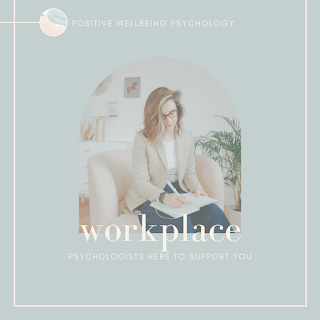Anxiety Psychologist in Melbourne – Are you Feeling Restless? Irritable? Experiencing Difficulty Breathing?
How do psychologists trained in the treatment of anxiety define anxiety disorders?
It is important to understand what anxiety symptoms can look like as often these can be mistaken by other medical concerns such as heart pain and difficulties with breathing. Anxiety is a mental health disorder that is characterised by feelings of excessive worry, anxiety or fear that is results in disruption to daily activities.
There are a range of anxiety disorders including panic disorder, specific phobias, generalized anxiety disorder, social anxiety disorder, obsessive-compulsive disorder and post-traumatic stress disorder. It is important to speak to a qualified psychologist that is experienced in anxiety treatment.
What are common triggers of anxiety at the moment?
It has been an extremely stressful time for many individuals with adjustment of Covid return to work set up. Individuals had their usual coping strategies removed completely for a period of time due to Covid-19 restrictions, resulting in isolation from family and friends, ceasing gym and yoga classes, limited university and school classes – among other things. We are not trying to get back into the swing of some normality, however many struggling to go back to day-to-day life responsibilities.
Covid-19, is certainly one common stressor that has resulted in anxiety and increased stress levels for many of our clients. Read more about this from an anxiety psychologist in Melbourne.
What are the common symptoms of anxiety?
The symptoms of anxiety include high levels of stress that is disproportionate to the impact of the event. You may also find that you are experiencing an inability to set aside a worry and restlessness. You may find that you often tire or fatigue easily, or experience significant difficulties with concentrating. Some individuals have explained the difficulty with concentrating as their mind going blank. It can also have an impact on your muscles due to increased tension, resulting from stress and the body tensing up tight. This is where relaxation strategies as part of the treatment approach to manage anxiety can be helpful. We need to look at ways to relax the body physiologically and to find a way to send signals to the brain that “we are safe” and “there is no threat” -- as often the muscles tense up with our brain perceives a real of ‘false alarm’ threat within our environment.
You may also notice that you are feeling more irritable and easily annoyed with loved ones or family members. Often this can result in being snappier and withdrawing from people closest to us. This is usually a result of our window of tolerance reducing due to a range of identifiable stressors using up all our mental capacity.
What are the common treatment modalities for anxiety disorders?
The evidence-based treatment for anxiety disorders may include counselling with a psychologist or medication, including antidepressants. The medication will need to be assessed and prescribed by your GP or Psychiatrist; however, a Psychologist at Positive Wellbeing Psychology will be able to conduct assessments to determine the severity of your anxiety symptoms, along with a detailed assessment using the biopsychosocial model to determine the best treatment needs for your individual circumstance as individuals needs vary. You can read more about the common symptoms of anxiety and treatment (read more by an anxiety psychologist in Melbourne).
What therapy approaches do your Melbourne psychologists find to be most effective for anxiety disorders?
There are a number of evidence-based anxiety treatment approaches that our professional and qualified anxiety psychologists will adopt at Positive Wellbeing Psychology. These treatment approaches may include:
> Cognitive-Behavioural Therapy (CBT),
> Exposure Therapy (Behaviour Therapy)
> Interpersonal Therapy (IPT)
> Mindfulness-Based Cognitive Therapy
> Positive Psychology
> Narrative Therapy
The therapeutic treatment approach will depend on the biopsychosocial assessment that is conducted with your psychologists. Clients of Positive Wellbeing Psychology will receive an individualised treatment plan according to their needs, which will be completed early on in therapy by one of our Melbourne psychologists. This treatment plan will ensure therapy goals are achieved in a safe and supportive clinical setting.
What to expect when seeing a Melbourne psychologist for an anxiety disorder?
Your psychologist would usually ask you questions relating to your symptoms, symptom onset, current lifestyle, and coping strategies that you may use from time to time. These may include maladaptive coping strategies such as binge eating, drinking excessive alcohol or substance use. A psychologist would provide education about what anxiety is, why it has developed and strategies that are proven to reducing the symptoms of anxiety.
Our Melbourne psychologists at Positive Wellbeing Psychology are highly skilled and trained in a range of well-researched therapies and techniques to manage anxiety, including Cognitive Behavioural Therapy (CBT), which is highly efficacious in alleviating anxiety or panic symptoms. It is important to reach out to professional support as soon as possible as anxiety left untreated can last a lifetime and cause significant disruption in daily life.



Comments
Post a Comment